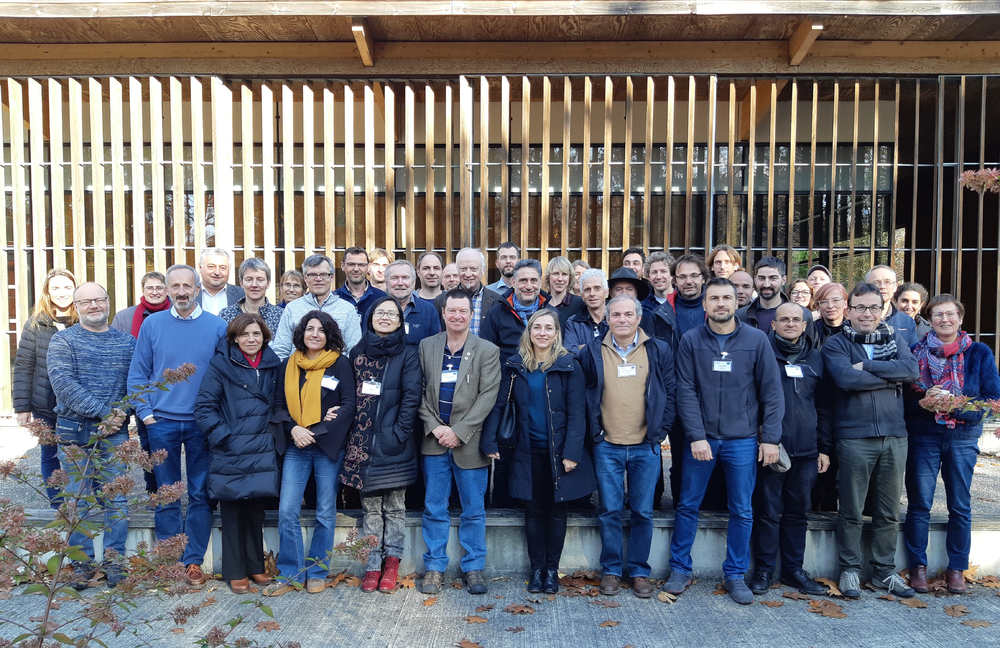holistic management of emerging forest pests and diseases
HOMED meets up for an official Kick-Off in France
HOMED: "Holistic management of emerging forest pests and diseases" adopts a multi-actor approach with the goal to develop a full panel of scientific knowledge and practical solutions for the management of emerging native and non-native pests and pathogens (PnPs) threatening European forests.

HOMED partners at the project's kick-off meeting
Over 50 scientists, experts and stakeholders of 21 partner organisations met for the project’s official kick-off from 20 to 22 November in Bordeaux, France, to mark the beginning of a four-year research and innovation action.
Within HOMED, forest health will be considered broadly, including trees not only in forests, but also in nurseries, urban and rural areas owing to the key epidemiological role of these components. Innovation will be central, as the new tools for pests and pathogens (PnPs) management will benefit from cutting-edge technology in biology, electronics, mathematics and physics.
"In the context of worldwide human population growth and associated global change, European forests are facing increasing expectations to sustain human needs and increasing threats to their own health," comments project coordinator Hervé Jactel from the French National Institute for Agricultural Research (INRA) "Forests must cope with increasing human-related stressors such as climate change, air pollution, and introduction of non-native pests."
HOMED recognises the need for action at the scientific level, technological level and risk management level. Forest managers, biosecurity agencies, policy makers and environmental NGOs will be involved in the project to express their needs and constraints and validate pest management tools as they develop.
Among the main objectives of the project is to develop a full panel of scientific knowledge and practical solutions for the management – from assessment to control – of emerging native and non-native pests and pathogens. By means of a holistic approach HOMED will improve strategies of risk assessment and management by targeting the successive phases of invasion, and develop mitigation methods for each phase - prevention, detection and diagnosis, surveillance, eradication and control tools.